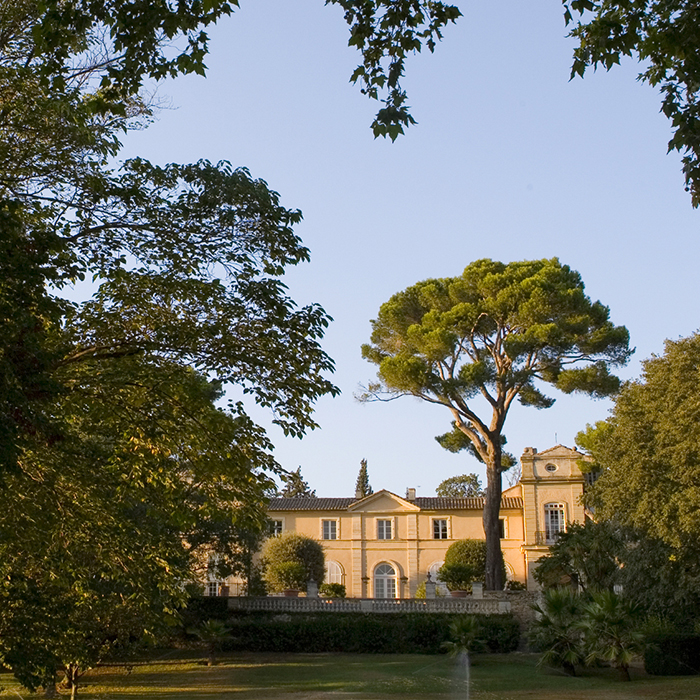Looking forward with Château la Nerthe
Author: Sophie McLean

“We are in the middle of our 22nd organic harvest,” says Christophe Bristiel, Commercial Director of Château la Nerthe, as he introduces us to the estate’s range of wines from Châteauneuf-du-Pape. Christophe has worked with this Rhône winery and the Richard family since 2009. Although not part of the family himself, the business is very much a family affair, with Christophe having followed in his own father, George’s footsteps to work here.
La Nerthe is one of the oldest producers in Châteauneuf-du-Pape. The estate’s impressive château – dubbed “the only exquisite château in all of Châteauneuf-du-Pape” by Robert Parker Jr – was built in the 18th century and winery records date back to 1560. Family-owned since its inception, the property was bought by the Richards in the mid-1980s. The family owns various properties in Bordeaux and Beaujolais, as well as owning and running a significant wine distribution business – supplying the best restaurants in Paris and beyond with wines from all around the world.
The wines are still made and aged in the original 1560s stone-carved cellar, where they produce cuvées with all 13 of the Rhône’s grape varieties. The property was put on the map by Joseph Ducos, an engineer to whom the founding Tulle de Villefranche family handed the winery over to at the end of the 19th century. Joseph juggled life at the domaine with his role as mayor of the town – playing a pivotal role in establishing the Châteauneuf-du-Pape appellation.
“He was the first to believe in technology,” says Bristiel of Ducos. He was the first to plant un-grafted vines, after phylloxera, a deadly louse, decimated the region’s vineyards, replanting 10 of the original 13 varieties. “He was the first to theorise that Châteauneuf was all about blending grapes,” Bristiel tells me. With this legacy still firmly in mind, the winery is trying to recreate Joseph Ducos’s original cuvée – although it is not currently intended for commercial release.
This is just one way in which the estate is pushing ahead. Organic since 1997, the emphasis here is very much on the vineyard. La Nerthe boasts its own natural spring within the grounds, irrigating the estate naturally, and giving the wines freshness and balance that you don’t necessarily associate with this famous Southern Rhône village. The clay soil is “a paradise for Grenache” – one of the key varieties planted here. Christophe describes the vines as having their “feet in the water, their head in the sun”. A sunny reason indeed to open one of these history-filled bottles – wines that have as promising a future as the estate itself.
Explore our range from Château la Nerthe – including the just-released 2018s – on bbr.com


